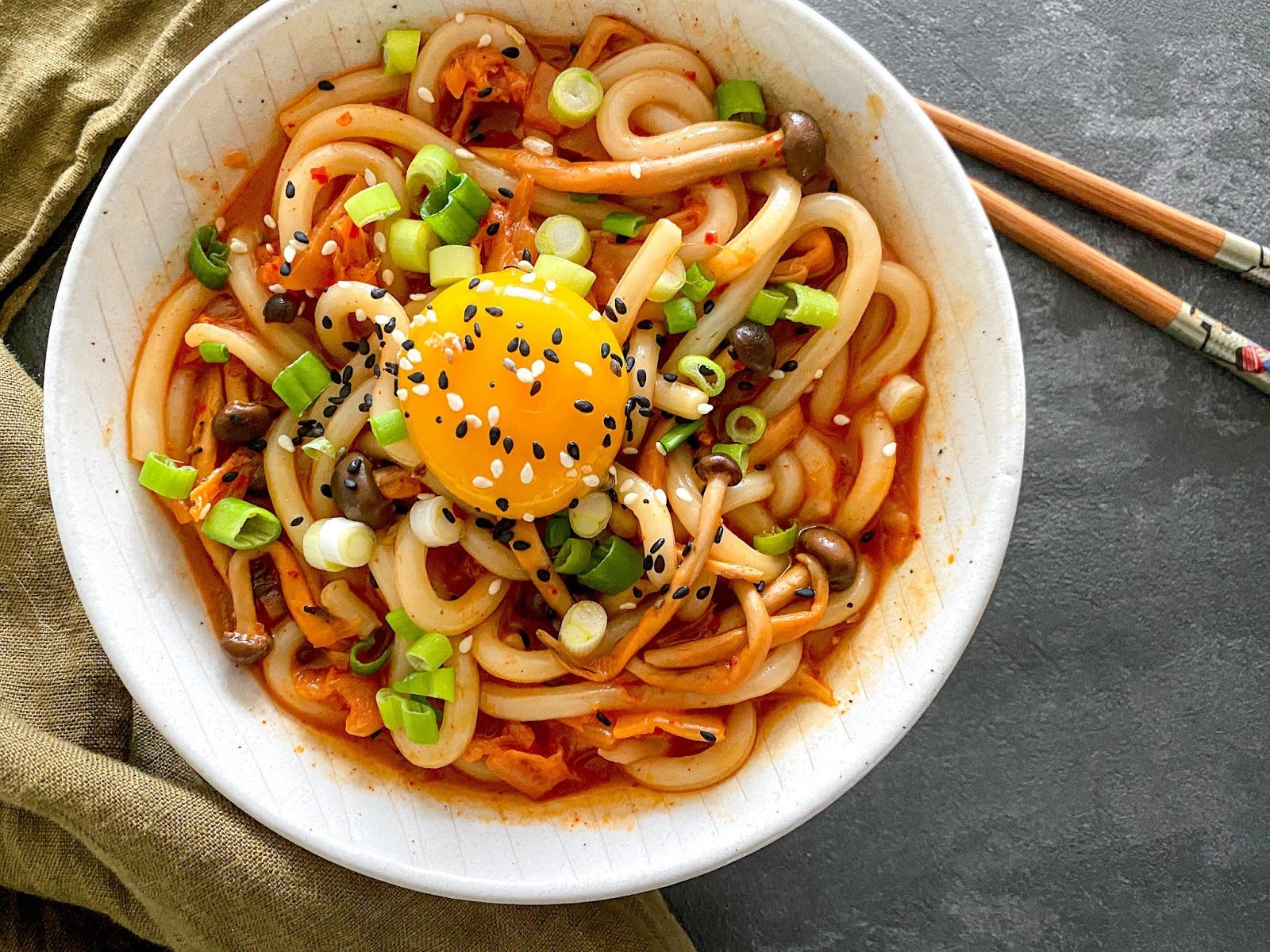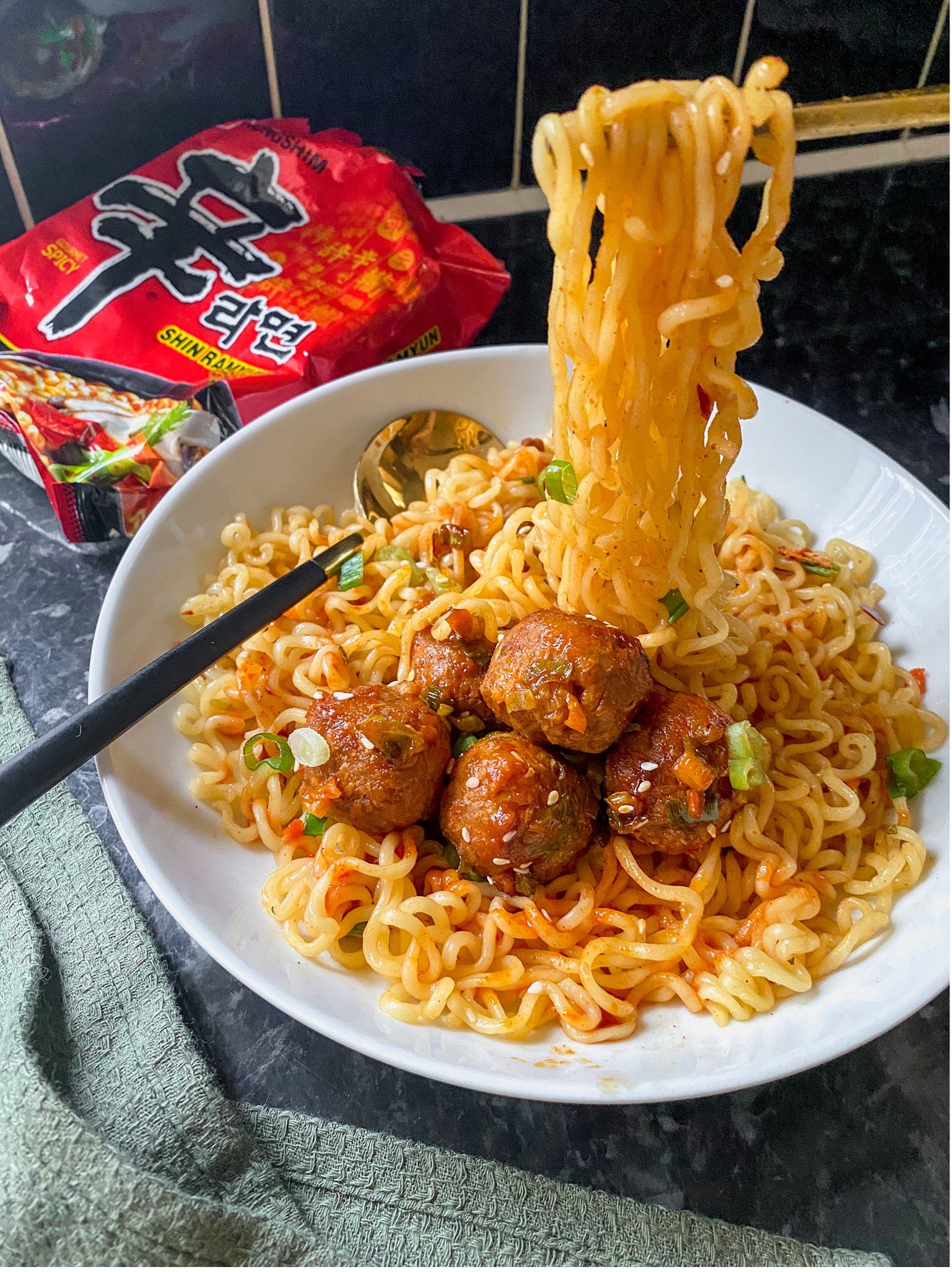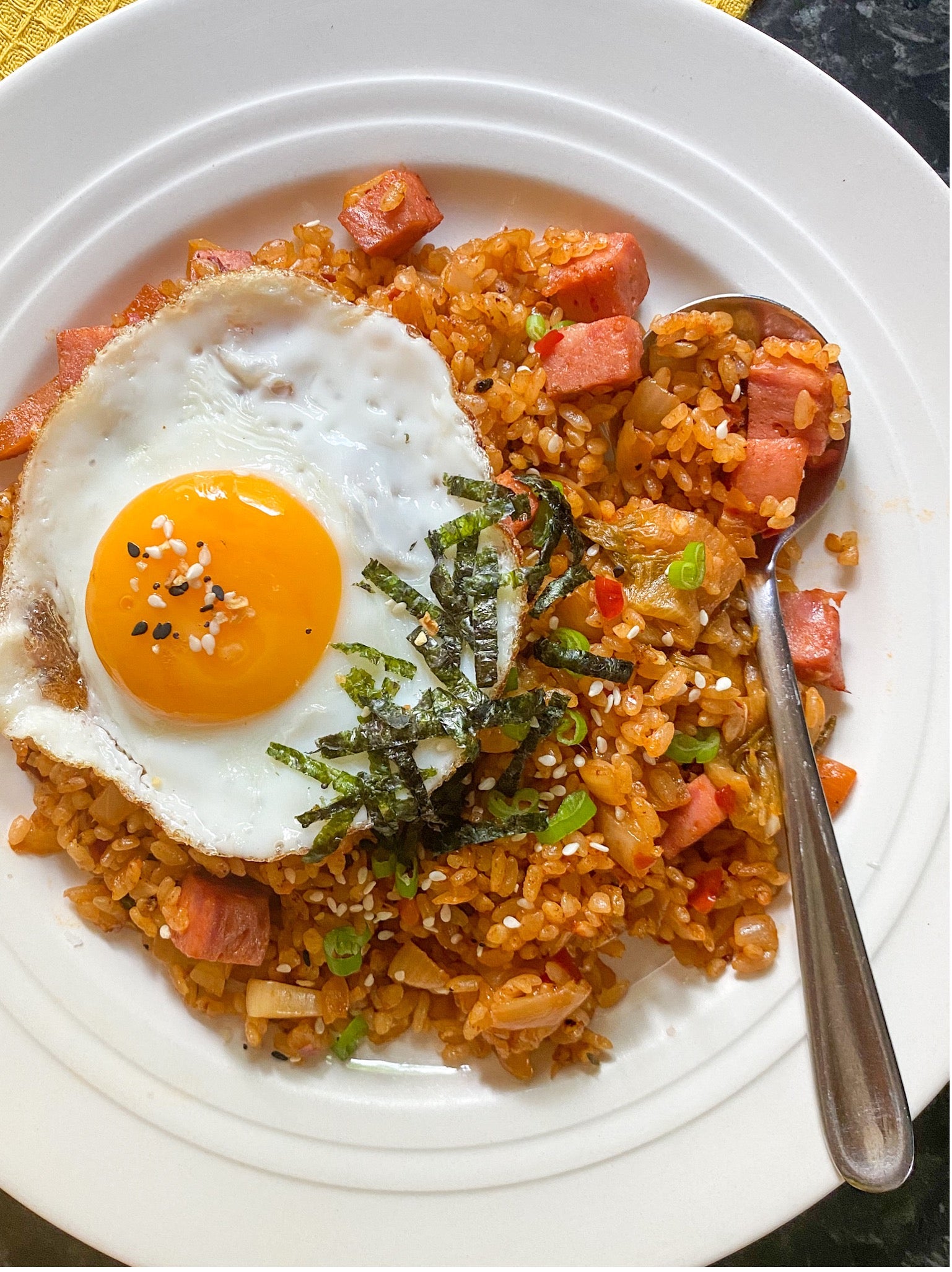A mouthwatering guide to gochujang
If it’s one of those ingredients you bought once and lost in the back of the cupboard, you’re seriously missing out, says Verna Gao. If you want savoury, sweet and spicy all at once, dig out the gochujang and get cooking

That red tub of Korean gochujang paste you bought for a fried rice recipe one time has probably been sitting at the back of your cupboard, neglected, ever since. Am I right?
Well, if you’ve been wondering what else you can do with it, I got you. This fermented red chilli paste is equal parts savoury, sweet and spicy, and is an essential Korean cooking ingredient in many dishes. For me, it’s an umami bomb, and I love adding it to all different kinds of recipes to level up the flavours.
Let me show you how to utilise that tub of forgotten gochujang in four of my favourite meals.
Read more:
Creamy kimchi udon
I love kimchi, and I adore udon noodles, so it was a no-brainer to combine both of these together for a fantastic meal. This dish is so easily adaptable, you can quickly turn it into a meatier dish or make it vegetarian-friendly by adding or removing your choice of protein.
The yolk here is not essential, but it does add to the creaminess of the dish.
Serves: 1
Prep time: 15 mins | Total time: 15 mins
Ingredients
1 pack fresh udon noodles, usually sold in vacuum packs (if using dry noodles, cook according to package instructions)
80g kimchi, roughly chopped
1tbsp gochujang paste
1tsp sugar
250 ml water
1tbsp spring onions, chopped
1 egg yolk
Choice of protein, such as minced pork, chicken pieces or tofu
Vegetables of choice (I use shimeji mushrooms here)
Method
1. In a frying pan, heat up some oil and add the gochujang paste and chopped kimchi. Stir to combine.
2. Add your choice of protein or vegetables, or both, and mix through until the protein is browned and vegetables are softened.
3. Add the noodles, sugar and water to loosen everything and help with mixing. Once everything is thoroughly combined, throw in the spring onions and plate up.
4. Top with a raw egg yolk if you fancy for extra richness.
Korean pork bulgogi

Bulgogi literally means “fire meat” and is typically made up of marinated slices of pork or beef that are cooked on a barbecue. It’s a classic Korean dish and super-easy to make at home. The longer you marinate the meat, the more flavourful the dish will be – this is definitely a dish worth getting organised for.
Serves: 2
Prep time: 15 mins | Total time: 15 mins (not including marinating time)
Ingredients
For the marinade:
500g pork shoulder, sliced (beef steak slices are also a good option)
1 clove garlic, minced
1 thumb-sized piece ginger, minced
1tbsp gochujang paste
1tbsp gochugaru (Korean chilli flakes, optional)
½tbsp mirin (optional)
1tbsp light soy sauce
1tbsp honey
For serving:
1 brown onion, roughly sliced
Steamed rice
Method:
1. Combine all the marinating ingredients together in a bowl, and thoroughly mix with the pork. Allow this to marinate for at least 30 mins, but preferably overnight.
2. When you're ready to cook, sauté the onion for a few mins until softened, then add the marinated meat. Stir-fry for 10 mins.
3. When the meat is fully cooked through, dish up and serve with some steamed rice, or wrap in lettuce leaves as you would for a Korean BBQ.
Dry ramen with spicy meatballs

Spag bol? Not quite – this is the all-time classic Shin Ramyun instant noodles put to excellent use, served dry with Korean meatballs. It’s a wonderful combination – don’t knock it ’til you try it.
You can also use the spicy, savoury, umami gochujang sauce in other easy recipes, such as stir-fries with chicken or tofu – it’s a keeper, that’s for sure.
Serves: 1
Prep time: 15 mins | Total time: 15 mins
Ingredients
Your favourite ramen (Shin Ramyun for me)
Meatballs, or other protein of choice
Gochujang sauce (1tsp each of gochujang paste, sesame oil, rice vinegar, honey)
Spring onions, chopped
Method
1. Mix the gochujang sauce ingredients together and cook the meatballs in it on a medium heat. Reserve a bit of the sauce for drizzling later.
2. While the meatballs are cooking, boil the ramen noodles in plain water, following the packet’s instructions. Drain and set aside.
3. Add half a packet of the ramen soup seasoning to the drained noodles and mix thoroughly.
4. Combine the noodles with the meatballs and drizzle on more sauce. Slurp and enjoy!
Classic kimchi fried rice

Just in case you didn’t buy your gochujang for kimchi fried rice, you should totally make this.
This is one of my favourite go-to meals, because it’s such a simple recipe, but still delivers a big umami bomb. And, as always, everything is better topped with a beautiful fried egg. You can substitute the spam here for minced meat, pieces of chicken or tofu.
Serves: 1
Prep time: 15 mins | Total time: 15 mins
Ingredients
250g rice, preferably second-day/cold rice (better for fried rice as warm rice sticks together)
80g kimchi, roughly chopped
1tbsp gochujang paste
Portion of Spam, cubed (optional)
1 small brown onion, finely diced
2 cloves garlic, finely diced
1tsp sugar
1 fried egg (optional)
Method
1. In a pan, heat up some oil and sauté the chopped kimchi along with the onion and gochujang paste for 2-3 mins.
2. Add in the garlic, sugar and protein and stir fry everything together thoroughly.
3. Add the rice and mix evenly, making sure to break up any clumps of rice.
4. Plate up with some roasted sesame seeds and nori seaweed as garnish. Add an egg on top if you’re feeling it. Enjoy!
Join our commenting forum
Join thought-provoking conversations, follow other Independent readers and see their replies
Comments